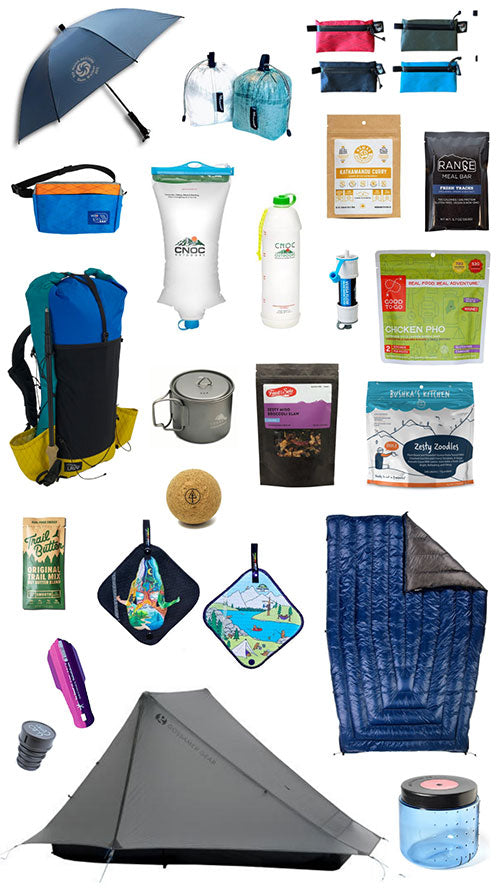
Enjoying the great outdoors is an incredible privilege that comes with great responsibility. As the stewards of wild places, it’s up to us to do our part to ensure special spaces stay that way for generations to come. Here are 5 simple ways to practice Leave No Trace that make a real, tangible difference.
Pick up Micro-Trash
Micro-trash refers to any super small bits of human-created waste that sometimes get littered in the outdoors. Although often overlooked, these little leave-behinds have a big impact on the environment. You can have a big impact too, by picking them up, even if you didn’t drop them there to begin with.
Micro-trash, like tear off tips of candy wrappers, bottle caps, cigarette butts and small pieces of food waste, end up in our waterways, and in the digestive systems of wildlife, with detrimental effects on them all. If we pick up litter (and avoid leaving any to begin with), we can help keep ecosystems thriving.
Stay on Trail
People, planners and park service representatives work hard to establish and maintain trails while taking environmental impact into consideration. We can trust that the routes that have been selected are designed to minimize our human influence and keep an ecosystem in balance. Staying on trail will mitigate detrimental impacts to foliage, wildlife, and waterways — allowing these wild spaces to remain healthy.

Leave What You Find
This one should be dead easy, because it’s really the action of non-action. It can be tempting to look at an overflowing field of wildflowers, or a long pebble beach and think ‘it’s just one’. But if everyone adopted this mindset, you can bet that the impact would add up. Rocks, flowers, sticks and shells play an integral role in the life cycle of the environment. It’s best to leave what you find, so that someone else can enjoy it, just like somebody did for you.
Camp On Durable Ground
In most circumstances, camping spots have already been established in thoughtfully selected places and on durable surfaces. In order to avoid unnecessary impact to the environment, it’s best to set up your camp in these areas.
If you are in a situation where established camp spaces are not an option, use your best judgment to select a spot that will have minimal impact on your surroundings. Try your best to avoid repeatedly walking the same routes around your camp to ensure that you don’t groove in pathways and damage the area more than necessary.

Don’t Feed Wildlife
Another great action of non-action is not feeding wildlife. Of course, this means not luring small woodland rodents over to you with snickerdoodles and human food, but it also means not leaving behind food waste for other creatures to find, as well as storing your food properly overnight and when away from your campsite.
Even foods that will decompose overtime in the natural world, like fruit and vegetable peels, are not natural to that environment and will attract wildlife to those areas to ingest them. Animals eating human food can lead to health problems, domestication and problematic human-animal encounters in the future.

These are just a few simple Leave No Trace practices that you can implement today! It’s important to fully familiarize yourself with and understand the 7 Leave No Trace Principles before you head out the door.
Do you have any other easy, simple and straightforward things that you do to minimize your impact on the great outdoors? Feel free to drop them in the comments below to inspire the rest of us to do our best!
Ali Becker is a freelance adventure writer and narrative storyteller who shares compelling conversations about personal transformations, overcoming limitations, wellness education and adventurous situations. You can follow her rambling adventures on social at @thisisalibecker.

















5 comments
Kim Kremer
I almost always sleep in a hammock. As long as the trees are stout enough and the hammock is hung using appropriate straps, the impact on the area is limited to the footfalls of the camper. It opens up a lot of areas for camping as I don’t need dry, flat, rock/root-free ground. (I stay out of pristine areas, and I don’t camp in areas closed to camping.)
John
I appreciate greatly the comment about micro-trash. Being in the Scouts where we always encourage “policing” the area before we leave, I am quickly frustrated by trash left at campsites.
I would like to add to this concept that nothing but paper should be burned in a fire pit. Almost every fire pit will have many small pieces of melted plastic and/or aluminum foil, or even small bits of metal cans. Sifting these out is a disgusting task.
Finally, I would encourage the practice of trying to never tear off the micro-bits on a wrapper. Always leave the tab attached so that these small pieces do not contaminate the environment. It is way too easy to accidentally drop a micro=bit of trash and not realize it.
Thanks for the reminders in the article!
Andy
I always look up when in a campsite to see if anyone has left a rope or string tied to a tree. I don’t want the rope to girdle the tree over time, so I do my best to get it down and take it away.
Nina S.
Use a Kula Cloth instead of toilet paper for wiping down there when you pee. No more tissue “flowers” left behind. Even if you pack out your stuff, you’ll use less tissue and have less to pack out. And no, it doesn’t get nasty smelling.
Michael
Don’t create stone steps to make crossing creeks easier; try to remove any you find. Hikers may not like it but they are bad for salmon and may create unnatural small ponds behind these artificial dams.